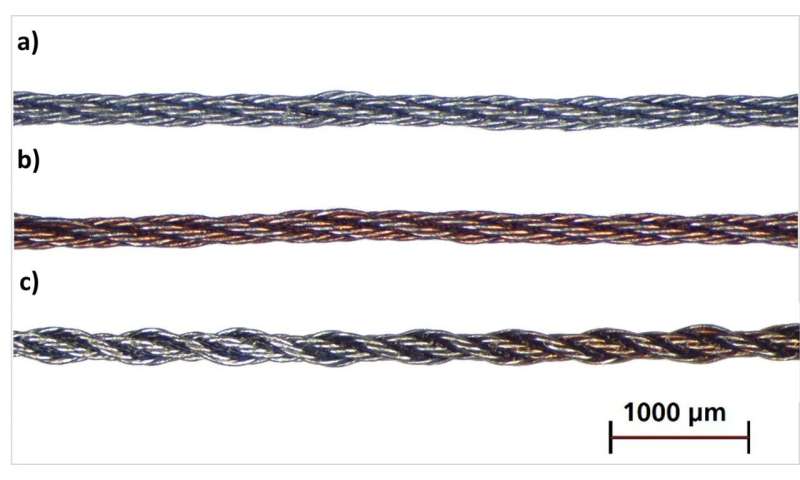Reduced risk after cardiac surgery thanks to resorbable pacing leads

A team of researchers at the Fraunhofer Institute for Manufacturing Technology and Advanced Materials IFAM in Dresden is developing resorbable pacing leads that can significantly reduce risk factors after cardiac surgery. In collaboration with the Faculty of Medicine Carl Gustav Carus—TU Dresden, the institute’s researchers are adopting this novel approach in the project Resorbable Molybdenum Temporary Cardiac Electrodes, or ReMoTe CarE for short.
Postoperative cardiac arrhythmias are common after cardiac surgery. They are routinely treated with external pacemakers and temporary pacing leads that are prophylactically implanted at the time of surgery. This is inherently associated with several risks: Manually extracting modern stainless steel pacing leads can result in complications as the wires can, in some cases, resist extraction due to tissue in-growth. However, if the leads are cut and left in the body, there is the risk of infection and migration; in the case of the latter, revision surgery may be required.
In the ReMoTe CarE project, researchers are investigating a completely new approach: In the future, bioresorbable leads that can be left in the body and then disappear by resorption after a defined period are expected to replace conventional leads.
This approach is based on the use of the metal molybdenum (Mo), which offers several advantages. “Molybdenum degrades uniformly in the body, is biocompatible, and has high mechanical strength and electrical conductivity,” explains Dr. Georg Pöhle, scientist at Fraunhofer IFAM in Dresden. For use in bioresorbable pacing leads, it is coated with resorbable biopolymers to electrically insulate the surrounding tissue.

Fraunhofer IFAM is testing and optimizing the mechanical, electrical and degradation properties of the materials used. The institute is also responsible for manufacturing the demonstrators—strands of fine metal wires that are coated with biopolymers. The demonstrators will be tested in preclinical studies at the Faculty of Medicine at TU Dresden later this year.
Source: Read Full Article


